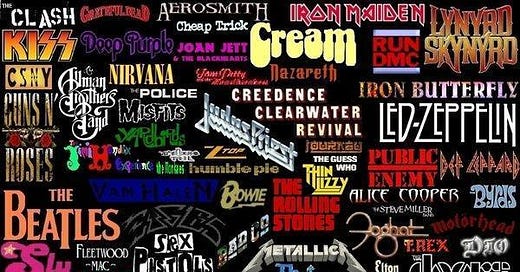Trying to figure out the complexities of the waning remnants of the music industry history, seems like it will never make sense. I recently watched a video from Rick Beato about this very subject. (I will add the link below in the article). The video got me thinking about how many people listen to music everyday without ever using paid streaming service…
Keep reading with a 7-day free trial
Subscribe to SoundHole Guitar Lessons to keep reading this post and get 7 days of free access to the full post archives.





